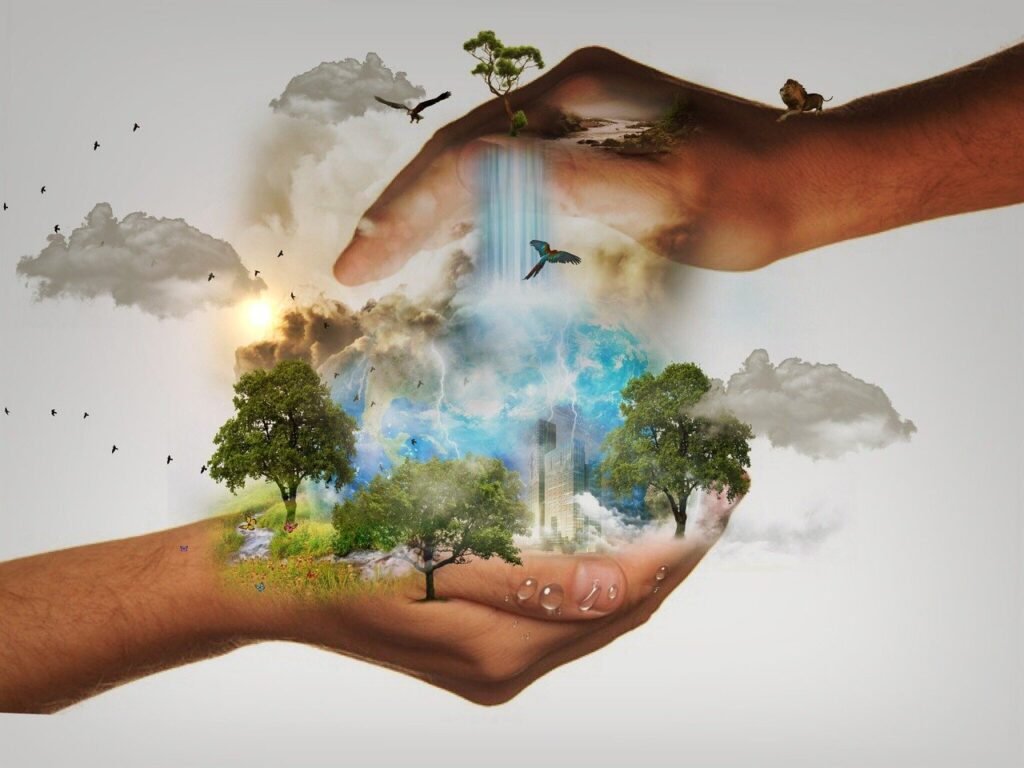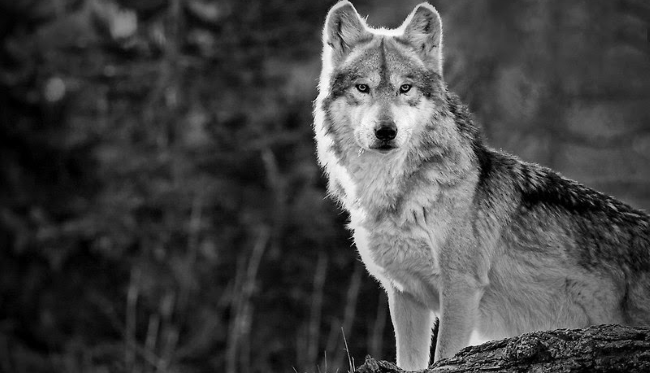The exploration of spirit realms has fascinated humanity across cultures and centuries, raising profound questions about ethics, responsibility, and the nature of consciousness itself.
As interest in spiritual practices, mediumship, shamanic journeying, and astral projection continues to grow in modern society, practitioners face complex ethical considerations that demand careful attention. The intersection between personal spiritual development and moral responsibility creates a landscape where ancient wisdom meets contemporary ethical standards, challenging us to approach these mysterious dimensions with both curiosity and caution.
🌟 Understanding the Sacred Territory of Spirit Communication
Spirit realms represent dimensions of existence that transcend ordinary physical reality, encompassing various planes of consciousness where entities, ancestors, guides, and other non-physical beings are believed to reside. Engaging with these realms is not merely a personal adventure but a sacred responsibility that carries weight beyond individual experience.
Throughout history, indigenous cultures have maintained strict protocols for spirit communication, recognizing that these interactions affect not only the practitioner but entire communities. Shamans undergo years of rigorous training, learning not just techniques but the ethical frameworks that govern respectful engagement with the spirit world. This wisdom reminds us that spiritual exploration without ethical grounding can lead to harmful consequences for both the practitioner and those they encounter.
The modern resurgence of interest in spirituality has democratized access to practices once reserved for trained specialists. While this openness offers opportunities for personal growth, it also creates situations where individuals may venture into spirit realms without adequate preparation or understanding of the ethical implications involved.
The Foundation of Consent and Permission 🤝
One of the most fundamental ethical principles in spirit work involves consent—a concept that extends beyond human interactions into the realm of spirits themselves. Just as we wouldn’t enter someone’s home uninvited in the physical world, approaching spirits and entities requires proper protocols of introduction, respect, and permission.
Many practitioners make the mistake of treating spirit communication as a form of entertainment or casual experimentation. This approach disregards the autonomy and dignity of the beings encountered. Ethical spirit work begins with humble requests for connection, clear statements of intention, and acceptance that spirits have the right to decline interaction.
When acting as an intermediary for others—such as in mediumship or channeling—the ethical complexity multiplies. Practitioners must obtain consent from both the living clients seeking messages and the deceased or spirit entities being contacted. Forcing contact or manipulating circumstances to produce desired results violates the fundamental principle of consent that should govern all spiritual interactions.
Establishing Boundaries and Protections
Ethical spirit work requires establishing clear boundaries before, during, and after engagement with non-physical realms. These boundaries serve multiple purposes: protecting the practitioner’s mental and energetic wellbeing, maintaining clarity of communication, and ensuring that spirit interactions remain beneficial rather than harmful.
Protection practices vary across traditions but commonly include grounding techniques, visualization of protective barriers, invocation of guides or higher powers, and clear opening and closing rituals. These aren’t merely superstitious practices but practical methods for maintaining psychological stability and energetic integrity when navigating altered states of consciousness.
⚖️ Navigating Power Dynamics and Vulnerability
The relationship between spiritual practitioners and those who seek their services involves inherent power imbalances that create significant ethical responsibilities. People approach mediums, shamans, and spiritual advisors during moments of grief, confusion, or desperation—states of vulnerability that can be easily exploited by unscrupulous individuals.
Ethical practitioners recognize this vulnerability and implement safeguards to prevent manipulation or dependency. This includes setting appropriate fees that reflect accessibility rather than exploitation, avoiding claims of absolute authority or exclusive knowledge, and empowering clients to develop their own spiritual discernment rather than creating reliance on the practitioner.
The temptation to exaggerate abilities, fabricate messages, or provide false assurances represents one of the most serious ethical violations in spirit work. The desire to please clients, maintain a reputation, or secure financial gain can lead practitioners to compromise honesty. Ethical integrity demands admitting limitations, acknowledging when connections aren’t clear, and resisting the pressure to deliver messages that may be inaccurate or harmful.
Cultural Appropriation and Respect for Traditions
The globalization of spiritual practices has created complex ethical questions around cultural appropriation—the adoption of sacred practices from cultures to which one doesn’t belong, often without understanding their deeper meanings or respecting their origins.
Many indigenous and traditional spiritual practices are inseparable from their cultural contexts, involving lineage transmissions, community relationships, and worldviews that cannot be authentically replicated outside their original frameworks. Using sacred symbols, rituals, or terminology without proper authorization or understanding can constitute a form of spiritual colonialism that perpetuates historical patterns of exploitation.
Ethical engagement with diverse spiritual traditions requires humility, extensive study, and often direct mentorship from authorized teachers. It means acknowledging when certain practices should remain within their cultural contexts and seeking permission before incorporating elements from traditions not one’s own. Respect involves giving credit, understanding context, and avoiding the commodification of sacred practices for personal or financial gain.
🔮 The Ethics of Information Sharing
Information received from spirit realms presents unique ethical challenges regarding confidentiality, interpretation, and delivery. Messages that come through mediumistic channels or shamanic journeys may contain sensitive personal information, predictions about future events, or guidance that significantly impacts decision-making.
Ethical practitioners must navigate the delicate balance between sharing potentially important information and recognizing the limitations and fallibility of spiritual communication. Even genuine spirit contact can be filtered through the practitioner’s subconscious biases, cultural conditioning, and personal interpretations, creating potential for distortion.
Responsible spirit workers develop protocols for information delivery that prioritize the recipient’s wellbeing. This includes framing messages in empowering rather than fatalistic terms, acknowledging uncertainty, avoiding predictions that remove personal agency, and recognizing when professional referrals to therapists or other specialists are more appropriate than spiritual counsel.
Discernment Between Helpful and Harmful Entities
Not all entities encountered in spirit realms have benevolent intentions or accurate information to share. The ethical practitioner develops discernment—the ability to distinguish between helpful guides, neutral presences, and potentially deceptive or harmful entities.
This discernment requires experience, training, and often guidance from more seasoned practitioners. It involves testing spirits, observing the effects of interactions, and maintaining healthy skepticism even while remaining open to authentic connection. Ethical responsibility includes protecting clients from potentially harmful spiritual influences and being willing to refuse or terminate sessions when negative entities are present.
Mental Health Considerations and Professional Boundaries 🧠
The intersection between spirituality and mental health creates particularly sensitive ethical territory. Experiences that might be interpreted as spirit contact—including visions, voices, and altered states of consciousness—can also be symptoms of psychological conditions requiring professional medical attention.
Ethical spiritual practitioners recognize the limits of their expertise and maintain clear boundaries between spiritual guidance and mental health treatment. This includes screening potential clients for serious psychological conditions, maintaining referral networks with mental health professionals, and understanding when spiritual practices might be contraindicated for individuals with certain vulnerabilities.
The responsibility extends to self-care as well. Regular engagement with spirit realms can affect practitioners’ psychological wellbeing, requiring ongoing grounding practices, peer support, supervision, and sometimes their own therapeutic support to process challenging experiences and maintain healthy perspectives.
🌍 Environmental and Ecological Ethics in Spirit Work
Many spiritual traditions recognize the interconnection between spirit realms and the natural world, viewing landscapes, plants, animals, and elements as infused with spiritual presence. This perspective carries ethical implications for how practitioners relate to the physical environment.
Ethical spirit work often includes honoring nature spirits, practicing environmental stewardship, and recognizing that exploitation of natural resources affects both physical and spiritual dimensions. Harvesting plants for ceremonial use, conducting rituals in natural settings, and working with animal spirits all require respectful approaches that consider sustainability and ecological impact.
This ecological ethic extends to questioning whether certain practices—such as using endangered plants or animals in spiritual work—can ever be justified, regardless of traditional precedent. Modern ethical frameworks demand adapting practices to contemporary environmental realities while maintaining their spiritual integrity.
💎 Transparency, Accountability, and Continuous Learning
Ethical integrity in spirit work requires ongoing commitment to transparency about one’s abilities, limitations, training, and intentions. This includes being honest about the subjective nature of spiritual experiences, the possibility of misinterpretation, and the absence of scientific verification for many claims about spirit realms.
Accountability mechanisms help maintain ethical standards within spiritual communities. These might include peer review, mentorship relationships, adherence to codes of ethics developed by professional organizations, and willingness to receive feedback and address concerns raised by clients or colleagues.
The rapidly evolving understanding of consciousness, psychology, and spirituality demands that ethical practitioners engage in continuous learning. This includes staying informed about research in relevant fields, refining techniques based on experience and feedback, and remaining humble about the mysteries that persist despite our explorations.
Building Ethical Communities of Practice
Individual ethics gain strength when supported by communities that share values of integrity and respect. Ethical spiritual communities create spaces for honest dialogue about challenges, mistakes, and dilemmas that practitioners face in their work with spirit realms.
These communities can develop shared standards, provide mutual support and accountability, and collectively address problematic behaviors. They create environments where questioning and critical thinking are valued alongside spiritual openness, preventing the formation of cultish dynamics that discourage healthy skepticism.
🕊️ Integrating Ancient Wisdom with Contemporary Values
The ethical navigation of spirit realms requires bridging ancient spiritual wisdom with contemporary ethical frameworks that emphasize consent, autonomy, equality, and evidence-based thinking. This integration isn’t about abandoning tradition but about thoughtfully examining which aspects of traditional practices align with modern values and which may require adaptation.
Some traditional practices involved hierarchies, gender restrictions, or methods that contemporary ethics would question. Honest engagement with this reality allows for evolution of spiritual practices that maintain their essential power while addressing ethical concerns raised by modern perspectives on human rights, equality, and wellbeing.
This integration also involves dialogue between spiritual and scientific communities, seeking ways to investigate claims about spirit realms with rigor while respecting the subjective, experiential nature of spiritual phenomena that may not fit easily into materialist frameworks.
Embracing Humility as Core Ethical Stance 🙏
Perhaps the most fundamental ethical principle for navigating spirit realms is humility—recognition of how much remains unknown, mysterious, and beyond human comprehension. This humility prevents the arrogance that leads to exploitation, false certainty, and harmful practices.
Humble practitioners acknowledge that their perceptions are limited, their interpretations fallible, and their understanding incomplete. They remain open to correction, willing to admit mistakes, and resistant to claiming special status or absolute authority. This stance naturally leads to more ethical interactions because it prioritizes ongoing learning and respect over ego gratification.
Humility also extends to recognizing that spirit work isn’t necessary or appropriate for everyone. Ethical practitioners don’t proselytize or insist that their path is superior to others. They respect diverse worldviews, including skepticism and materialist perspectives, while maintaining integrity in their own practice and beliefs.
Creating Personal Ethical Frameworks for Spirit Exploration 🌠
Each practitioner must ultimately develop their own ethical framework for engaging with spirit realms, informed by tradition, community standards, personal values, and ongoing reflection. This framework should address key questions about intentions, methods, boundaries, and responsibilities.
Regular ethical reflection helps practitioners stay aligned with their values even as challenges arise. Questions to consider include: What are my true motivations for this work? How do I handle situations where personal benefit conflicts with client wellbeing? What practices do I need to maintain my own spiritual and psychological health? How do I respond when I’m uncertain or have made mistakes?
Documenting personal ethical guidelines creates accountability and provides reference during difficult decisions. These guidelines can evolve with experience but serve as anchors preventing drift toward compromised practices during moments of temptation or pressure.
🌈 The Path Forward: Ethics as Spiritual Practice
Navigating spirit realms with integrity and respect isn’t a burden that limits spiritual experience but rather a practice that deepens and enriches it. Ethical consciousness transforms spirit work from self-centered exploration into service that honors both visible and invisible dimensions of reality.
The ethical challenges inherent in spirit communication invite practitioners to develop greater self-awareness, discernment, compassion, and wisdom—qualities that serve not only spiritual practice but all aspects of life. Wrestling with these dilemmas cultivates the very consciousness expansion that spiritual seekers pursue.
As humanity’s understanding of consciousness continues evolving and interest in spiritual practices grows, the establishment of robust ethical frameworks becomes increasingly important. These frameworks protect vulnerable individuals, preserve the integrity of sacred traditions, and ensure that exploration of spirit realms contributes to human flourishing rather than exploitation or harm.
The journey into spirit realms offers profound opportunities for healing, wisdom, and connection with dimensions of existence beyond ordinary awareness. By approaching this territory with integrity, respect, humility, and continuous ethical reflection, practitioners honor both the spirits they encounter and the sacred responsibility inherent in bridging worlds. This ethical commitment transforms spirit work from mere curiosity or entertainment into a genuine spiritual path that serves the highest good of all beings, visible and invisible alike.
Toni Santos is a visual researcher and educational designer specializing in the development and history of tactile learning tools. Through a hands-on and sensory-focused lens, Toni investigates how physical objects and textures have been used to enhance understanding, memory, and creativity across cultures and ages, while exploring the transformative practices of shamanic journeying, sacred plant medicines, and spiritual rituals. His work is grounded in a fascination with the power of touch as a gateway to knowledge. From embossed maps and textured alphabets to handcrafted manipulatives and sensory kits, Toni uncovers the subtle ways tactile tools shape cognitive development and learning experiences, while engaging with shamanic journeying and altered states, sacred plant medicines and their use, spirit animals and totems, and rituals for personal transformation. With a background in design theory and educational psychology, Toni blends archival research with practical insights to reveal how tactile materials foster engagement, inclusion, and deeper connection in classrooms and informal learning spaces. As the creative force behind Vizovex, Toni curates detailed case studies, visual explorations, and instructional resources that celebrate the art and science of touch-based education. His work is a tribute to: The transformative role of tactile tools in learning The intersection of sensory experience, cognition, and spiritual insight The craft and innovation behind educational objects and ritual practices Whether you’re an educator, designer, or lifelong learner, Toni invites you to explore the rich textures of knowledge—one touch, one tool, one discovery at a time.




